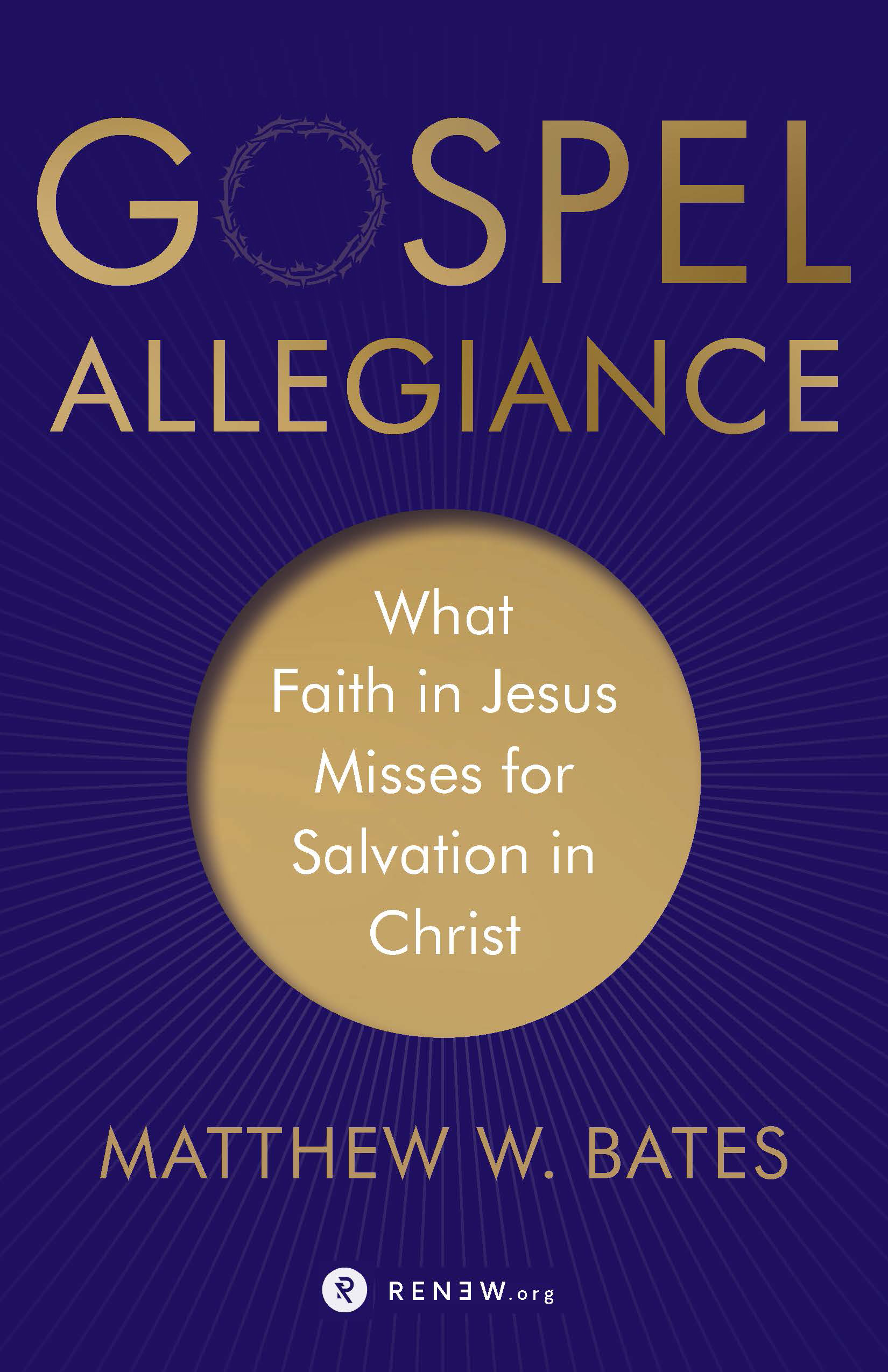
This Week on Seminary Dropout…
Matthew W. Bates (PhD, University of Notre Dame) is associate professor of theology at Quincy University in Quincy, Illinois. He is the author of Salvation by Allegiance Alone, named the Jesus Creed 2017 Book of the Year and one of the Best Books of 2017 by Englewood Review of Books. He has also written The Birth of the Trinity and The Hermeneutics of the Apostolic Proclamation. Bates is cofounder and cohost of the popular OnScript podcast.

Is faith in Jesus enough for salvation? Perhaps, says Matthew Bates, but we’re missing pieces of the gospel. The biblical gospel can never change. Yet our understanding of the gospel must change. The church needs an allegiance shift.
Popular pastoral resources on the gospel are causing widespread confusion. Bates shows that the biblical gospel is different, fuller, and more beautiful than we have been led to believe. He explains that saving faith doesn’t come through trust in Jesus’s death on the cross alone but through allegiance to Christ the king. There is only one true gospel and one required response: allegiance.
Bates ignited conversation with his successful and influential book Salvation by Allegiance Alone. Here he goes deeper while making his acclaimed teaching on salvation more accessible and experiential for believers who want to better understand and share the gospel. Gospel Allegiance includes a guide for further conversation, making it ideal for church groups, pastors, leaders, and students.
-From the Publisher


Missio Alliance Comment Policy
The Missio Alliance Writing Collectives exist as a ministry of writing to resource theological practitioners for mission. From our Leading Voices to our regular Writing Team and those invited to publish with us as Community Voices, we are creating a space for thoughtful engagement of critical issues and questions facing the North American Church in God’s mission. This sort of thoughtful engagement is something that we seek to engender not only in our publishing, but in conversations that unfold as a result in the comment section of our articles.
Unfortunately, because of the relational distance introduced by online communication, “thoughtful engagement” and “comment sections” seldom go hand in hand. At the same time, censorship of comments by those who disagree with points made by authors, whose anger or limited perspective taints their words, or who simply feel the need to express their own opinion on a topic without any meaningful engagement with the article or comment in question can mask an important window into the true state of Christian discourse. As such, Missio Alliance sets forth the following suggestions for those who wish to engage in conversation around our writing:
1. Seek to understand the author’s intent.
If you disagree with something the an author said, consider framing your response as, “I hear you as saying _________. Am I understanding you correctly? If so, here’s why I disagree. _____________.
2. Seek to make your own voice heard.
We deeply desire and value the voice and perspective of our readers. However you may react to an article we publish or a fellow commenter, we encourage you to set forth that reaction is the most constructive way possible. Use your voice and perspective to move conversation forward rather than shut it down.
3. Share your story.
One of our favorite tenants is that “an enemy is someone whose story we haven’t heard.” Very often disagreements and rants are the result of people talking past rather than to one another. Everyone’s perspective is intimately bound up with their own stories – their contexts and experiences. We encourage you to couch your comments in whatever aspect of your own story might help others understand where you are coming from.
In view of those suggestions for shaping conversation on our site and in an effort to curate a hospitable space of open conversation, Missio Alliance may delete comments and/or ban users who show no regard for constructive engagement, especially those whose comments are easily construed as trolling, threatening, or abusive.